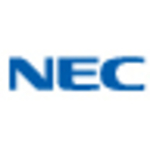What is our primary use case?
We use it for virtual machines and data. It performed well but it's end-of-life now. We have to refresh everything. It's still working but it's end of support for the product.
How has it helped my organization?
It did what it was supposed to do and it worked well.
What is most valuable?
High availability. It has a lot of redundancy and good management software as well as good alerting.
What needs improvement?
Some of the new features include what they call auto-tiering, where data that needs to be on a faster storage, it would automatically detect that and move it to the faster storage or the most frequently accessed area. Data that doesn't move that much or is not accessed that often would go on a slower storage. It's more efficient, helps a company to maximize what they spend. This kind of storage costs a lot of money; they build that into the newer functionality and into newer SANs.
If you are going to go with all-flash then it's very expensive but it has a lot of performance benefits and a lot of improvement in reliability. Some companies can afford leading edge. My company cannot afford leading edge, so we probably have to go one generation below.
What do I think about the stability of the solution?
It's very stable. We have had no issues.
What do I think about the scalability of the solution?
You have to determine your size as a company, if you're a small business, medium, or enterprise. The model that we bought was scaling to about a small- to medium-size business, but they give you enterprise functionality. That was the EqualLogic. But if we were bigger or we planned to grow or acquire, we probably would have selected Compellent or some other product line.
You have to make sure you buy the right fit for you to scale because if you're a small company and you don't plan to expand, then this is a solution for you. If you plan to grow, then you need to buy a different model or different solution.
The one that we're buying now is a unified storage solution. It's kind of expensive when you buy the EqualLogic solution because, as you grow, you have to keep buying another controller. It can be more expensive with time.
At the end of the day, you have to remember that every three to five years you have to toss this equipment away and buy a new one. You don't want to overspend.
How are customer service and technical support?
The support was excellent. When there are alerts, they would get them and they would be on it right away, and they would send a technician to replace. If there was a hard drive that failed or controller that failed, they would send a technician. It was always up, never down. Very good support.
Which solution did I use previously and why did I switch?
We have alerts. Then the lifecycle refresh time came up, end-of-life. Now, you can continue getting support from a third-party who would support for 10 years after the end-of-life. What triggered us to make a change is the fact that we're running our production data on equipment that is no longer supported by the manufacturer.
When selecting a vendor support is key, support and part-availability. The features, they are important too, but the most important thing to me and to us is the fact that, if there is a problem, the company will support you. Dell does an excellent job of support.
We had HPE before. In my country, the local support vendor of HPE wasn't as diligent as Dell, but that may be different in another jurisdiction. I'm in the Bahamas, so if I was in America maybe I would have a different opinion.
How was the initial setup?
I was involved in the initial setup. It was straightforward.
Which other solutions did I evaluate?
The last five to seven years we went with Dell and they are a good vendor so we continued with them. The only difference is that EMC products have been acquired by Dell.
What other advice do I have?
It's now end-of-life, end of support, so we're shopping around for a replacement. With all this technology, they only have a lifespan of three to five years and then new features and new functionality come along. New speed. The new ones perform at much faster speed, so you have to change everything often.
I'd give the EqualLogic solution a seven out of 10. It is an entry-level SAN for the enterprise. We're a small business. The price point was good for us and it's scalable; we could buy as many modules as we need, as we grow. They work together. The management of it is good but it can't go higher than a seven because, like I say, it's entry-level. It doesn't have all the functionality and features of some of the more expensive ones. But again, based on the budgets we have to work with, it was the best we could afford.
Disclosure: My company does not have a business relationship with this vendor other than being a customer.





